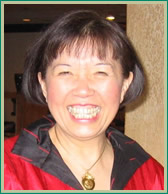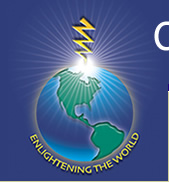
Two Challenging Months of Now
|
 |
|
Bea Mah Holland |
While 2012 has already provided many wonderful blessings and joyful moments, I have had an extraordinarily heavy heart over the past couple of months. This has been brought on by the death of the only child of dear relatives. I am sure that the grief that they are experiencing is beyond comprehension except to those who have experienced something similar, yet we who are in their immediate circle have also been deeply affected.
As one of the people intimately connected to the family, I have experienced considerable lethargy. At times I’ve had only half of my usual energy, and routine tasks have taken me far longer than usual. Given my particularly strong reaction to the child’s untimely death, I self-diagnosed myself as possibly suffering from depression. For the first time in my life, I began wondering if I should consider medication to deal with my feelings of grief, hopelessness, impotence, and the “I shoulda” and “I coulda” of irrational guilt.
My feelings of loss have been compounded by my increased awareness of mortality. While apparently I am in very good health, friends talk about their own and their parents’ increasing age, and the severity of their medical diagnoses. And I realize that my own mother lived to be only 10 years older than I am now—and my dad died eight years earlier than my current age.
I have been experiencing a kaleidoscope of feelings. At times I have felt angry and cheated. Why should this child have died so young when my peers and I, of considerably older vintage, continue to successfully navigate life’s shoals? I am enormously grateful for my current health, yet sober about the eventual diminishment of everyone’s health, including my own. And while we humans are programmed for fairly predictable life spans, I fantasize about holding on to our current decent physical, spiritual, and mental health—forever. I harbor at least some fear for that time when “the shoe starts to drop” and, though not constantly preoccupied, I’m aware of my periodic trepidation.
At the same time, I have had several reminders that I am strong and can navigate life. Several factors have colluded to enable my wholeness to remain intact and focused mostly on now. A few of those practices are listed below.
1. Focus on the present. What am I feeling, and what can I do in the moment? I was in shock when I learned of this tragedy—the day before my husband and I were leaving for a winter vacation. I was somehow able to connect with the bereft parents and make an offer to contact people whom they might want to inform.
2. Attend to self-care. Though not a lifelong student of making myself the priority, I am pleased that I have been getting better at doing this over the past several years. Basic practices such as eating delicious, healthy food and exercising regularly are now routines. My husband and I alternate months for cooking, so while he experiments with new recipes from WSJ, the Globe, or anywhere, I get reenergized about the succulent dishes that I can prepare when it’s my turn. Peter and I use a trainer weekly and do yoga as often as we can together—and I participate in Zumba class with great enthusiasm and joy.
3. Ask for help from loved ones. A subset of attending to self-care is the ability to ask for help. My close friend Celia, for example, has invited me to call her at any time of the day or night and, while I have never disturbed her at late hours, I have felt her availability no matter what. As she has done consistently through our friendship of 30-plus years, she immediately tuned into my distress and built in extraordinary ways to accompany me on what has been a rocky road.
4. Revisit VIA Signature Strengths. The feedback from this (free!) on-line questionnaire—developed by well-known psychologist Martin Seligman and his colleagues—serves me well. In reviewing my key strengths, I am reminded of my creativity, purposefulness, and strong ability to love and be loved—my signature strengths—and this allows me to access my reservoir of hope.
5. Remember other times of encountering and successfully dealing with significant challenges. Through reflection on the peaks and valleys of my life, I realize that I have always had sufficient interior resources to deal with whatever obstacles have presented themselves.
6. Jot down things that you are really grateful about and, in whatever ways you can, express that thanks and appreciation to those who have enabled this. For example, I have recently reminded a mentor of his importance in providing me with a broadened way to think about organizations and leadership.
7. Enter nature. Even on slightly chilly days, we dine on our back deck, where we are surrounded by trees and bushes, as well as chipmunks and squirrels, plus many varieties of birds. Once or twice a week, we take a nature path through a nearby forested area—a walk that I am sometimes ambivalent about taking, yet always am glad to have done.
8. Mindfully meditate. Though I have meditated intermittently for decades, my practice now includes a daily time to focus on my breathing.
9. Access opportunities to learn and expand your repertoire of behaviors. Since I sometimes coach and consult in healthcare, I recently attended a healthcare retreat where the focus was on resilience—a perfect topic at just the right time. Resilience, sometimes defined as the ability to recover quickly from difficult conditions, can be enhanced by “a firm view of reality and acceptance, a sense of values, a belief in one’s purpose, and an ability to innovate and think outside the box” (adapted from Hope in Healthcare Spring Retreat 2012 materials).
Others and I have been able to solicit support from relatives and friends who have made themselves and their resources available to the grieving parents. Their healing process, which will take many steps over a long period of time, could in fact include some of the above practices. I have deepened my own learning to be present, and know that each of us has to find his or her own way.
![]()
Center for Empowered Leadership ®
Email: info@cfel.org
Phone: 1.609.259.7911
